In pictures: Moby's bedroom studio
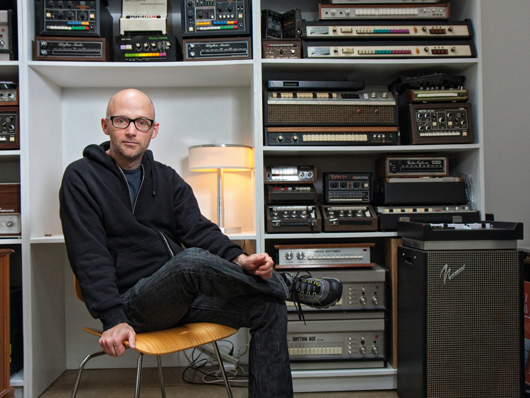
Come on in
Synth loving genre-straddler Moby recently released Wait For Me, his ninth studio album, and to celebrate the occasion, he invited Future Music magazine into his bedroom studio. “It’s got a great atmosphere,” says Moby. “Loads of different artists have had studios here – people like Iggy Pop, Sonic Youth, the Butthole Surfers and the Beastie Boys. I sleep in the smaller bedroom and I make music in the slightly larger bedroom.”
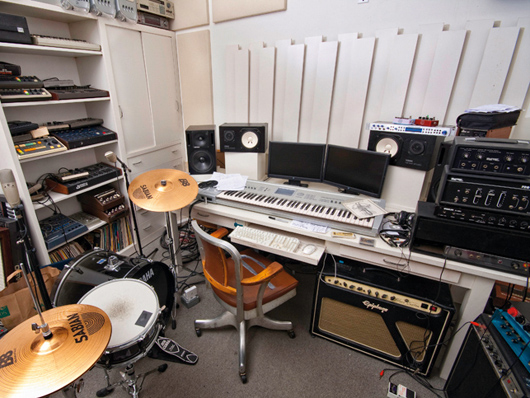
Monitoring
Moby’s had someone in to give the room some acoustic treatment: “Mixing in here used to be a real nightmare,” he admits. His monitoring setup, meanwhile, comprises a pair of Genelecs and Yamaha’s trusty NS10s. “The Genelecs are fun to listen to because everything sounds fantastic on them,” notes Moby, while supporting the consenus that “The NS10s sound crappy, but if you get it working on them, you know you’re doing something right”.
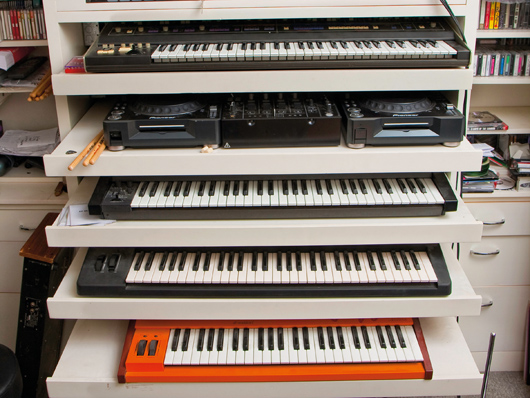
Synths
An enviable collection of synths can be found in Moby’s facility, and he managed to pick up some of his more lust-worthy analogue models for less than you might expect. “I started collecting this stuff when nobody wanted it. There was that period between about 1984 and 1990 when everyone wanted digital synths. I think I paid $100 for the Juno-106. The Jupiter 6 cost me virtually nothing. How can you not appreciate these machines?”
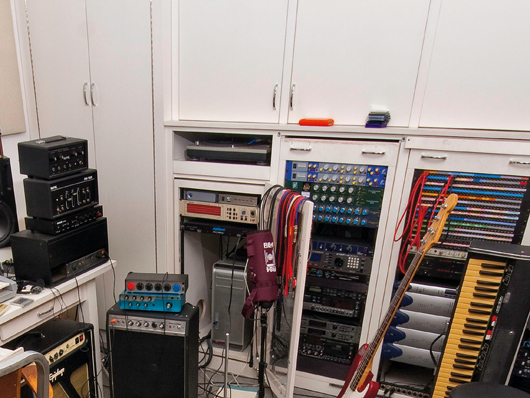
Pro Tools
Take a close look at this picture and you’ll see that Moby runs a Power Mac G5 and Pro Tools HD setup for recording purposes. “With Pro Tools you get instant results, you can record as many parts as you want and you never have to dig out a screwdriver to adjust the machine when it starts messing up,” says the star.
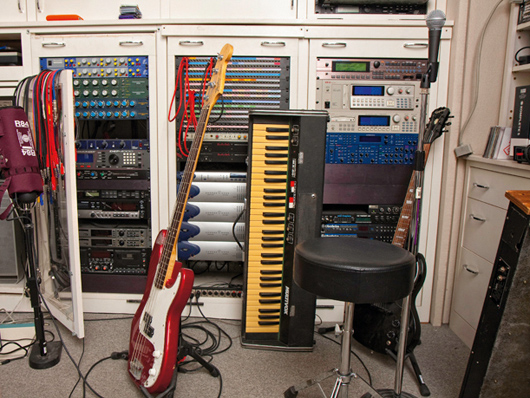
Guitars
Although he’s a big fan of synths, drum machines and other electronic gear, Moby still likes his ‘real’ instruments, which explains the presence of the guitar and bass in his studio. “[Wait For Me] started out with piano and guitar - just me sitting around and playing a tune or some chords.”
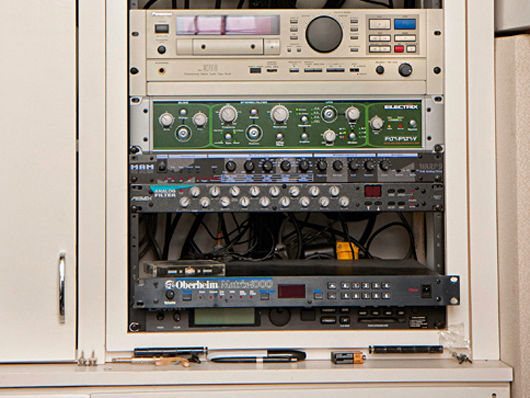
Outboard
He may be a Pro Tools fan, but Moby still has plenty of outboard gear around the place. “Using all the old gear does mean you spend a lot more time messing around, because each reverb or compressor will only work on two or three pieces of music,” he notes. “Onboard compression works on everything, but it all sounds the same. The sounds you get from the analogue stuff make it worth the extra effort.”
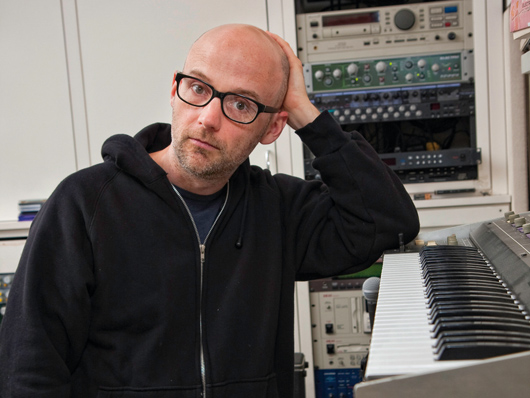
The advertising issue
Moby admits that he now regrets allowing so many tracks from his Play album to be used in ads, and won’t be going down that road again. “Unfortunately, once you make a bargain with the Devil, you can get caught out. I did and I got crucified. And rightly so. Things are different now. I certainly won’t do that again. This new album’s just for me. It’s personal.”
Read the full interview with Moby in the September issue of Future Music (FM217), on sale now.
Future Music is the number one magazine for today's producers. Packed with technique and technology we'll help you make great new music. All-access artist interviews, in-depth gear reviews, essential production tutorials and much more. Every marvellous monthly edition features reliable reviews of the latest and greatest hardware and software technology and techniques, unparalleled advice, in-depth interviews, sensational free samples and so much more to improve the experience and outcome of your music-making.


